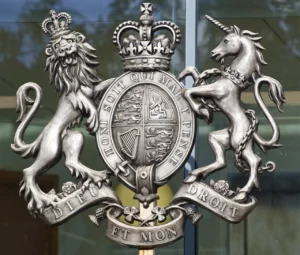Today marks a crucial milestone as companies submit their plans for the next price review period, spanning from 2025 to 2030, to the Office of Water Services (Ofwat). The proposed plans, which will undergo thorough scrutiny and challenge by Ofwat, are expected to be finalised in December 2024.
Ofwat has mandated that companies adopt ambitious strategies to reduce pollution while ensuring value for money for consumers. To foster positive change, an incentive regime will be implemented, rewarding effective delivery and imposing financial penalties on companies that fail to meet the challenge.
The water sector faces critical issues, including pollution from storm overflows, the need to enhance river and bathing water quality, and fortifying water resources to tackle climate change and population growth. Ofwat emphasises the importance of innovation, urging companies to leverage digitalisation and nature-based solutions to address challenges like storm overflows.
With an expected increase in water bills, Ofwat encourages companies to build on industry progress in supporting customers struggling to pay. The regulatory framework, enabling £200 billion of investment since privatisation, seeks a balanced approach to risk and return. Companies must align dividends with performance for customers and the environment.
Ofwat will engage customers and stakeholders for feedback on company business plans through public meetings, ‘Your Water, Your Say,’ fostering transparency and public participation in the decision-making process.
David Black, Ofwat’s CEO, emphasises the need for a significant shift in investment and performance to address environmental concerns and climate change, pledging meticulous scrutiny of business plans to ensure efficiency and substantial improvements.
In a related development, Ofwat announces that under-performance by water and wastewater companies will result in a £114 million rebate to customers next year. The regulator holds companies accountable for falling short of targets set for 2022/23.
Royal Mail Increases First Class Stamp Price to £1.25
The price of a first-class stamp has risen to £1.25 from £1.10, marking the third increase in 18 months. Royal Mail attributes the rise to increasing cost pressures and the challenging economic environment. The move has sparked concerns from Citizens Advice, urging regulator Ofcom to address the escalating prices amid rising household costs.
Royal Mail justifies the price hike by citing the lack of reform to the Universal Service Obligation (USO), which mandates the company to deliver letters to all 32 million UK addresses six days a week. The price of a second-class stamp remains unchanged at 75p.
Six Companies Progress in UK Government’s Small Modular Reactor (SMR) Competition
Six companies—EDF, GE-Hitachi Nuclear Energy International LLC, Holtec Britain Limited, NuScale Power, Rolls Royce SMR, and Westinghouse Electric Company UK Limited—have advanced in the government’s Small Modular Reactor (SMR) competition. The initiative aims to develop cutting-edge nuclear technology for enhanced energy security.
Unlike conventional reactors, SMRs are smaller and can be produced in factories, potentially revolutionising power station construction by making it faster and more cost-effective. The government envisions up to a quarter of all UK electricity coming from nuclear power by 2050.
The selected designs are deemed capable of delivering operational SMRs by the mid-2030s. The next stage will involve companies bidding for government contracts, with the goal of announcing supported companies in Spring 2024 and awarding contracts by Summer 2024. The competition aspires to be the world’s fastest of its kind.


































